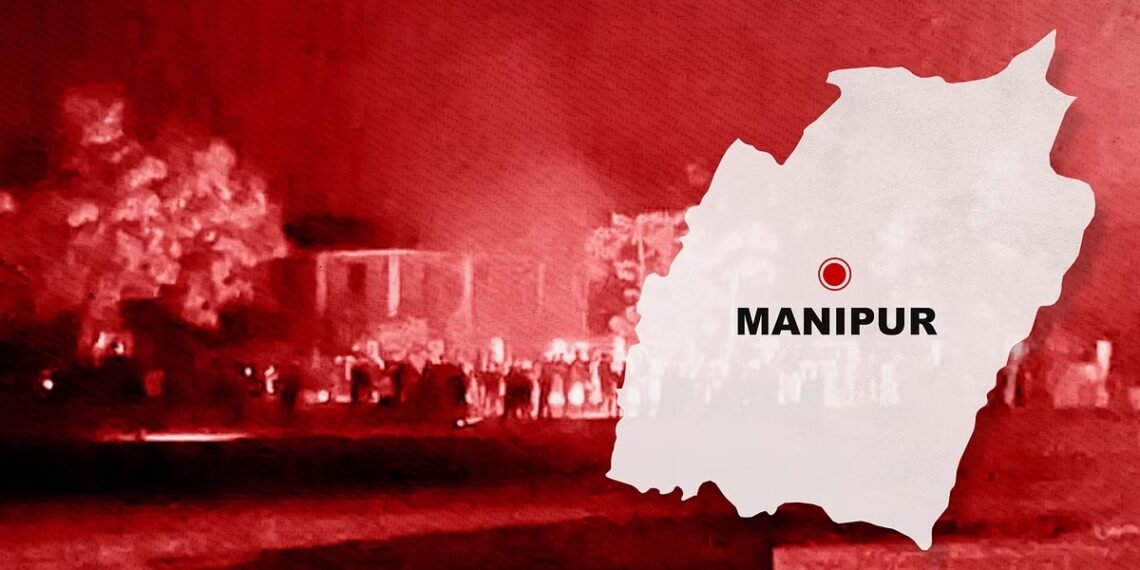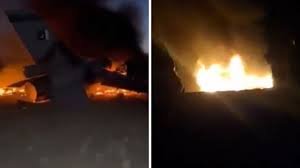The autopsy reports of the victims reveal a gruesome picture of their final moments, with multiple gunshot wounds and other injuries.
By PC Bureau
In the conflict-scarred region of Manipur, the autopsy report of the brutal killings of six Meitei civilians, including a three-year-old boy, have laid bare the grim reality of the ethnic strife that continues to engulf the state.
The autopsy reports of the victims reveal a gruesome picture of their final moments, with multiple gunshot wounds and other injuries.
The victims—three-year-old Chingkhei Nganba Singh, his mother Laishram Heitombi Devi, and his grandmother Yurembam Rani Devi—were among six members of the same family reported missing after an audacious militant attack on Borobekra police station in Jiribam district on November 11.
Once living in a relief camp after losing their home in the ethnic clashes that erupted in May 2023, they were abducted at gunpoint, and their lifeless bodies were discovered days later floating in the Barak River.
Autopsy reports conducted at Silchar Medical College in Assam revealed gruesome details. The young child’s body bore a gunshot wound to the skull, along with stab wounds and lacerations. His right eye was reportedly missing. His mother suffered three gunshot wounds to her chest and one to her lower body, while his grandmother was shot five times, including in the skull and chest. Both women also bore deep lacerations, suggesting a prolonged and vicious attack.
Three other family members—an eight-month-old infant, the child’s aunt, and her eight-year-old daughter—met a similar fate, though details of their autopsies remain undisclosed. Calls to the Jiribam police station for information on the remaining autopsy reports went unanswered.
Adding a chilling dimension to the tragedy, a photograph of the abducted family appeared on November 12 in a public WhatsApp channel named Zogam News. The image was accompanied by reactions that included smiling emojis—a macabre reflection of the normalization of violence in the region.
The killings were not an isolated event but part of a series of brutal clashes between the Meitei and Kuki communities that have spiraled out of control in recent months. The November 11 attack on Borobekra police station was reportedly carried out by Kuki militants, who kidnapped the six family members during the assault.
In the ensuing 45-minute gunfight, the Central Reserve Police Force (CRPF) neutralized 10 militants, recovering a cache of weapons, including assault rifles and a rocket-propelled grenade launcher.
The situation escalated further after the discovery of the victims’ bodies between November 15 and 18. According to reports, the family was forced onto a boat on the Barak River by their captors before meeting their tragic fate.
This episode of violence came just days after suspected Meitei militants allegedly attacked a Hmar tribal village on November 7, killing a woman in what her family described as a heinous assault involving rape and arson. Civil society groups representing the Kuki tribes have accused the Manipur government of remaining silent on that incident, alleging bias in addressing the violence.
Unraveling Peace
The ethnic clashes in Manipur, which have claimed over 220 lives and displaced nearly 50,000 people, have deep historical roots. At the heart of the conflict lies the Meiteis’ demand for inclusion in the Scheduled Tribes category, juxtaposed against the Kukis’ call for a separate administration, citing marginalization and discrimination.
The violence in Jiribam is just one facet of the larger conflict that has gripped Manipur since May 2023. The Meitei community, predominantly Hindu, and the Kuki tribes, mostly Christian, have clashed over issues of land rights, identity, and political representation.
The situation has been exacerbated by the influx of refugees from Myanmar’s Chin State, who share ethnic ties with the Kuki tribes. Tensions have escalated, leading to widespread violence, displacement, and loss of life.
The central government has deployed security forces to quell the unrest, but the situation remains volatile. The National Investigation Agency (NIA) is investigating the recent killings, and political leaders across the spectrum have condemned the violence.
The Manipur cabinet, in a statement on November 16, alleged that “Kuki miscreants” were responsible for a series of provocations, including attacks on Meitei villages and police facilities. This was countered by Kuki groups, who accused the government of bias and complicity in the violence.
The ongoing strife has divided civil society and drawn sharp reactions from across the political spectrum. Leaders condemned the November 11 incident as a terrorist attack, pointing to the deliberate targeting of women and children, which sets it apart from riot-like skirmishes.
A Cry for Justice
With the National Investigation Agency (NIA) stepping in, there is hope for accountability, though skepticism abounds. Families of the victims, meanwhile, remain caught in an agonizing wait for justice. Local police have reportedly asked community members to secure court orders for access to remaining autopsy reports, further fueling tensions.
The killings on the Barak River are a stark reminder of the human cost of this prolonged conflict. As both communities mourn their dead and brace for further violence, the larger questions of peace, reconciliation, and justice loom large.
Manipur’s rivers, which once carried life and sustenance, now flow heavy with the weight of grief and loss. For a state torn by decades of conflict, the road to healing feels as distant as ever. Yet, amidst the despair, the demand for accountability and the hope for a better future remain alive, however faint.
4o














